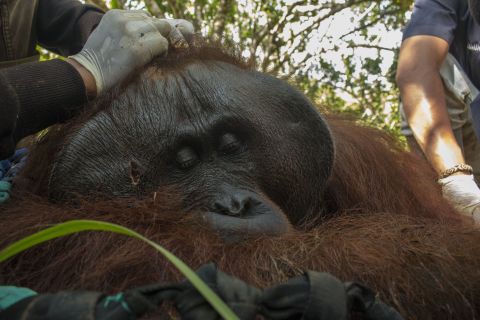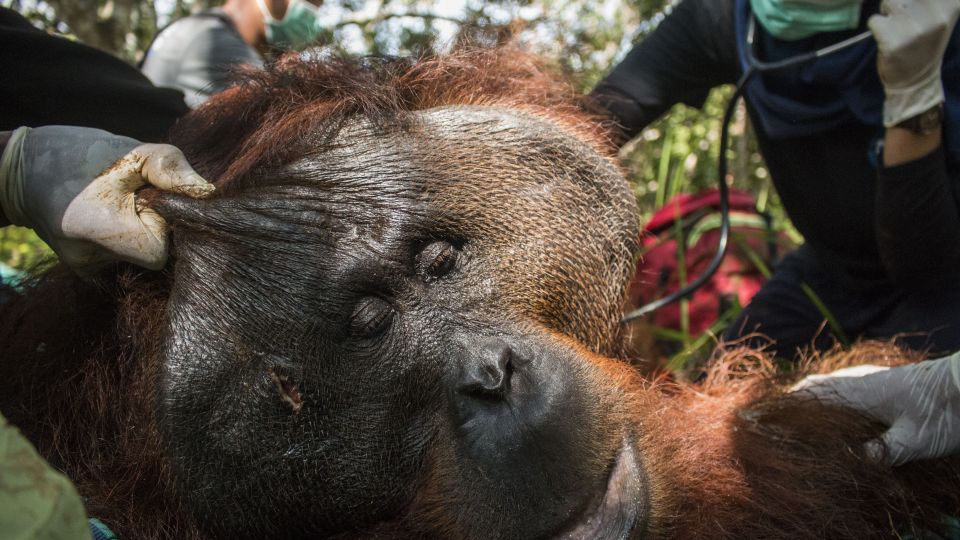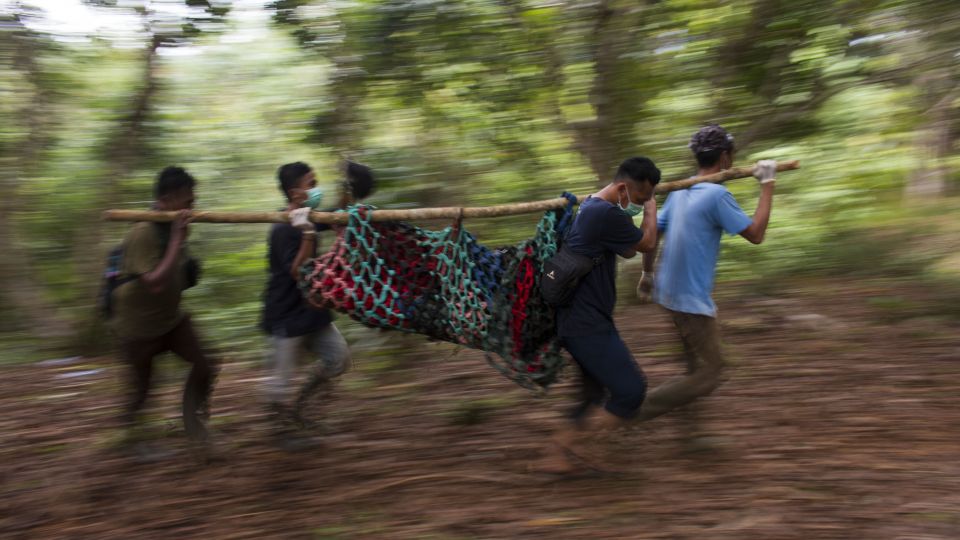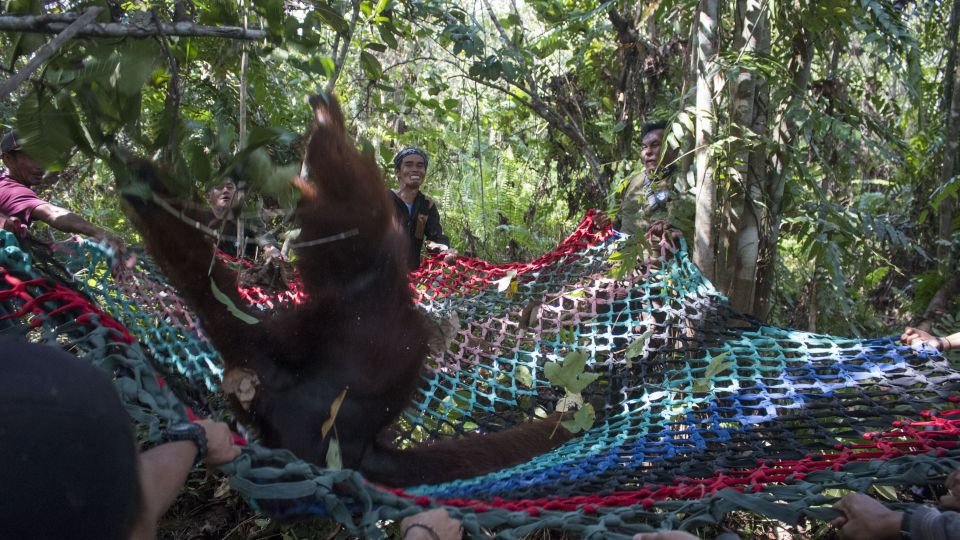
A wild orangutan rescued from a community garden in West Borneo has been treated for a bullet wound to his face before being moved to safety and released into a National Park.
The orangutan’s capture and translocation was carried out by our team in collaboration with the Natural Resources Conservation Centre (BKSDA) and Gunung Palung National Park (GPNP) where the ape was released.
There had been sightings of an orangutan in a community garden in the village of Riam Berasap back in July 2017 and our Orangutan Protection Unit started carrying out regular patrols in September. At that time the team found evidence of damaged and half-eaten fruit in the gardens but there was no sign of the orangutan itself. At the end of the year, when there was fruit on the trees, there were more frequent reports of orangutans in the plantation. During routine patrols our unit often found orangutans in the area and drove them back into the forest.

However, one orangutan started paying frequent visits to the garden to eat the fruit. At this point local residents asked the BKSDA to translocate it.
The orangutan was finally found on a plantation owned by residents near Jalan Ketapang-Siduk. We mobilised a rescue team immediately and coordinated plans with the GPNP and BKSDA to translocate the orangutan to a safe place. It took two hours to capture the ape. Once the orangutan had been anaesthetised, our medical team moved quickly to check his condition.
“In general, this orangutan’s condition is good. But there is quite a significant wound on his right cheekpad which we need to sew up before we move him anywhere,” said vet Sulhi Aufa, coordinator of our medical team in Indonesia.
Judging by his teeth, the orangutan, whom the team named Lulup, was estimated to be more than 25 years old. ”It’s likely that Lulup’s injury has been caused by an airgun,” Sulhi added. “We often find bullets in orangutans that venture into community owned gardens.” In 2015 our team saved another male orangutan, Jambu, whose body was riddled with bullets.
Just two weeks after Lulup’s rescue the decapitated, mutilated body of an orangutan was found floating in a river in Central Borneo. An autopsy revealed that there were 17 airgun pellets lodged in the ape’s body which had ruptured its heart, lungs and stomach.

Alan Knight OBE, our Chief Executive said: “It is heartbreaking to see these Critically Endangered great apes being subjected to persecution, mutilation and even murder when they lose their forest home and go in search of food. We always encourage rural communities to call on us or on the forestry department when they have a problem with a wild orangutan and fortunately for Lulup, that is what the villagers did. However, judging by the injury to his cheekpad, he had a lucky escape and our team arrived in the nick of time.”
Four local men acted as porters and carried Lulup’s transport crate on the two hour journey to the release site in the National Park. On arrival, at about 7.15pm, Lulup was released smoothly into his new home.
“Conflict between people and orangutans is increasingly common owing to large scale destruction of the forest,” said Karmele L Sanchez, our Programme Director of in Indonesia. “But there is no simple answer to the problem. On the one hand, people feel threatened and scared. On the other hand, orangutans only enter gardens and plantations because humans have destroyed their habitat and left them without food and shelter.”
“Translocation is only a temporary solution to this kind of conflict,” Sanchez added. ”Situations like this will be repeated if the problems associated with the landscape are not resolved. Landscape conservation requires the cooperation of all stakeholders, not just local communities and governments, but also companies that have plantation land in or around orangutan habitat. Currently we are working with BKSDA Kalbar and GPNP to focus on long term solutions related to such problems in the area so that future human-orangutan conflict can be prevented.”
Dadang Wardhana, Head of the Gunung Palung National Park, said: “I greatly appreciate the cooperation between IAR, GPNP,

BKSDA Kalbar, and all those people who are helping to tackle the problem of wildlife conflict. I urge the community not to install traps because orangutans are critically endangered and protected by law. We also appeal to anyone who finds an orangutan in their garden or plantation to report it to IAR, the officers of the National Park or the BKSDA.”
Sadtata Noor, the Head of West Kalimantan BKSDA, also expressed his gratitude to all parties who participated in the translocation operation, saying: ”Conservation work requires cooperation. The government can’t do this work effectively without the participation of groups like IAR and the assistance of local communities. “

